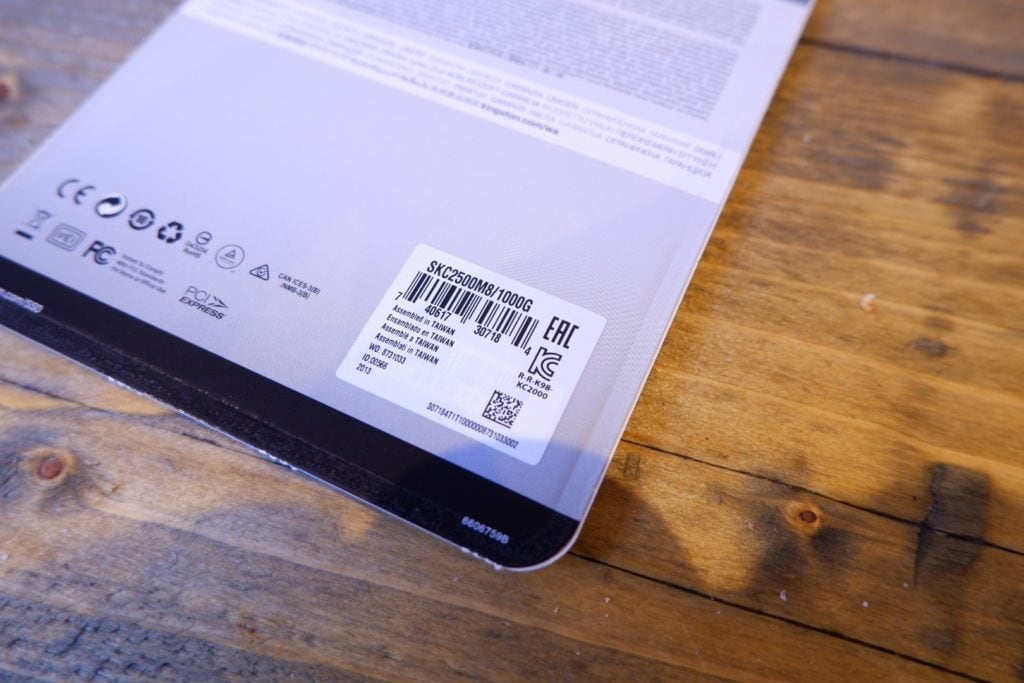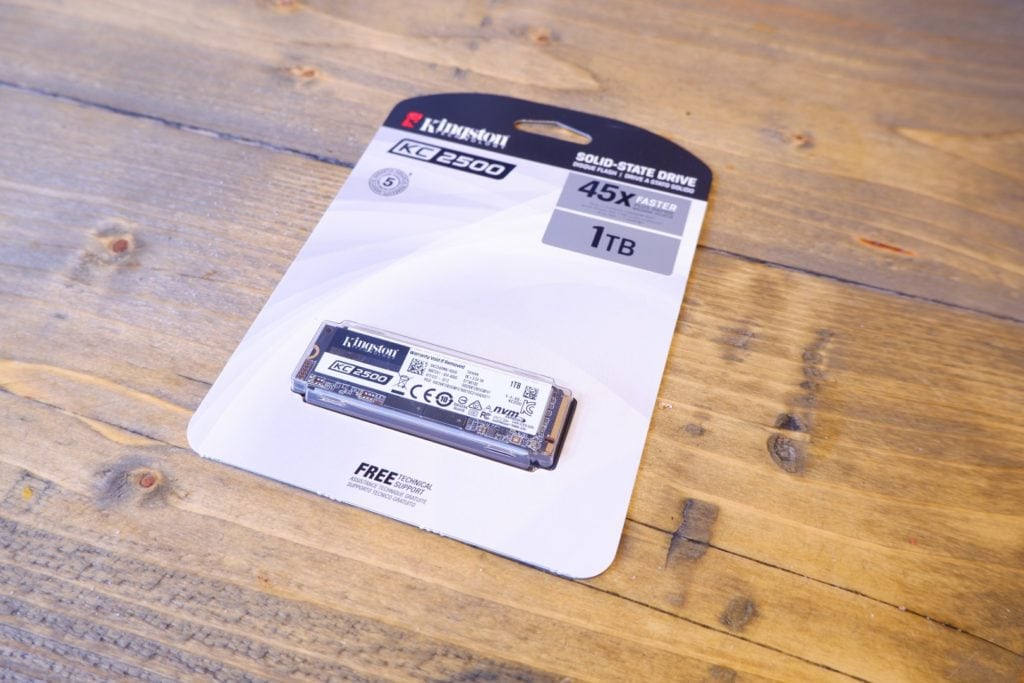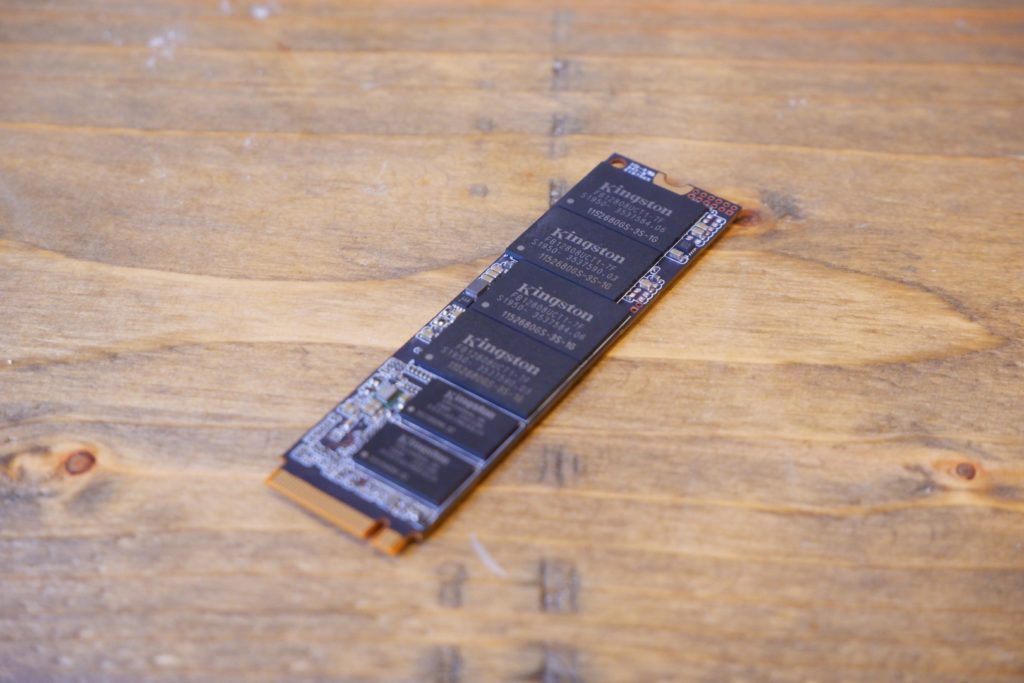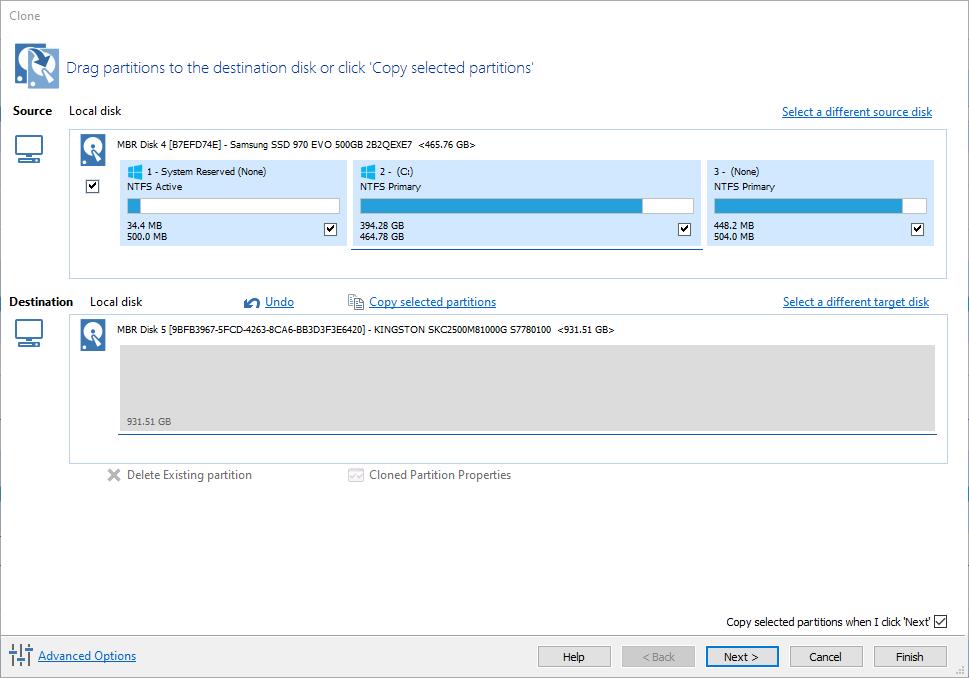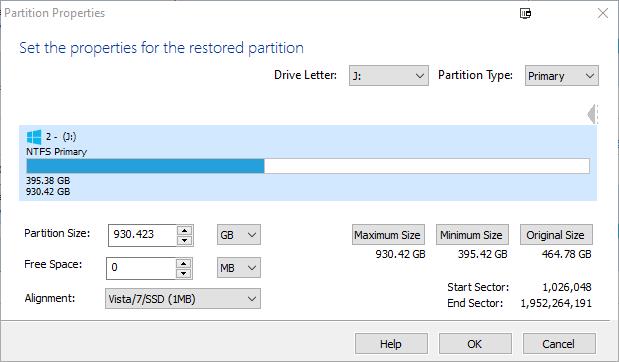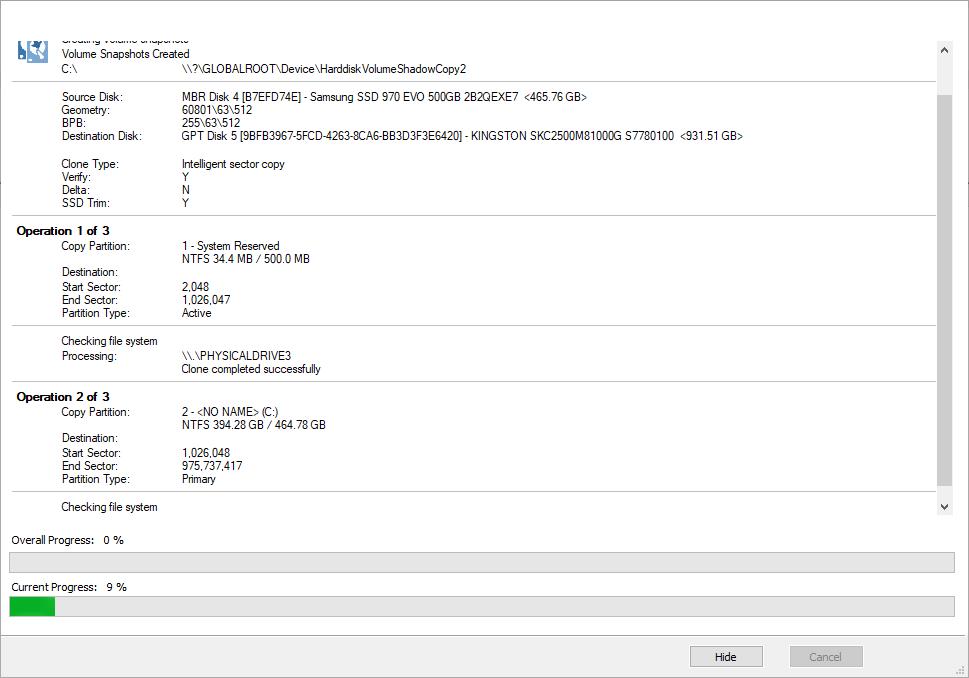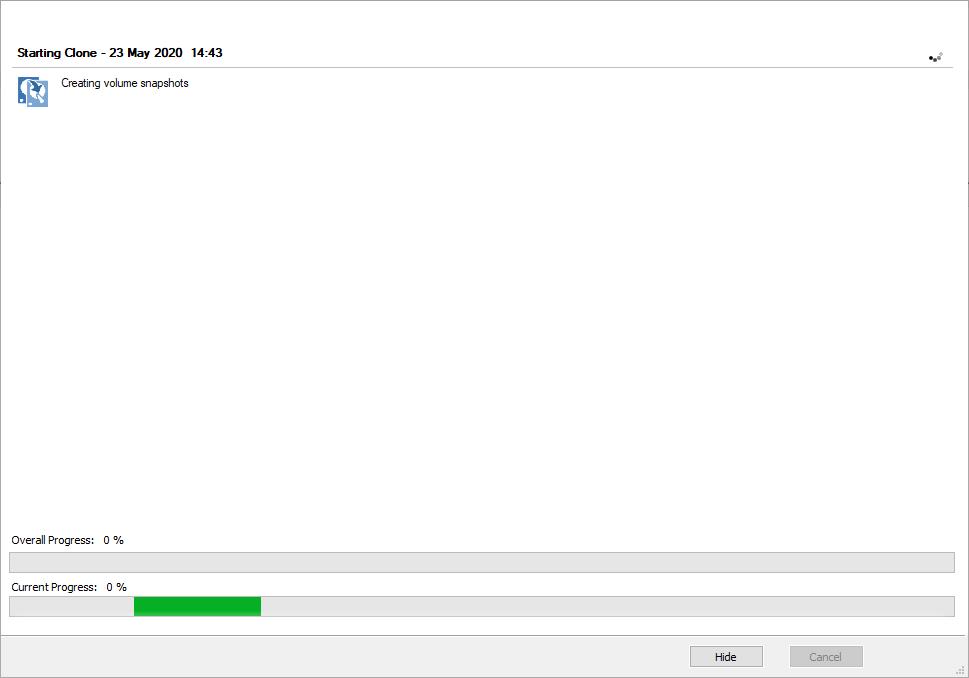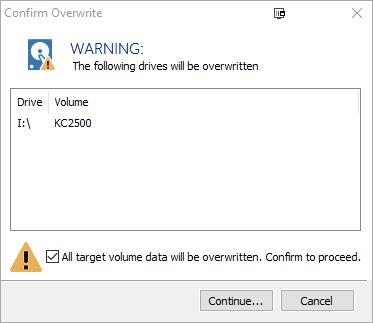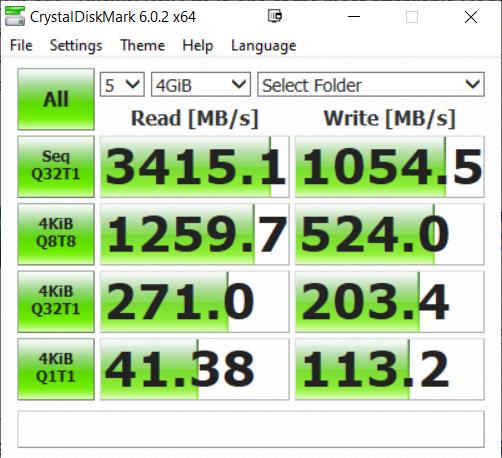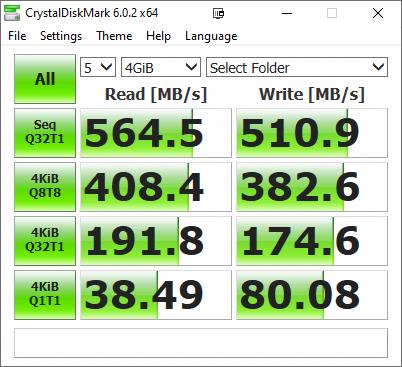Kingston has recently refreshed their lineup of NVMe drives with the new KC2500 series which promises improved performances over the already excellent KC2000.
The new range offers an increase of almost 10% to the sequential read speeds going from 3200 to 3500MB/s and an impressive 32% increase for sequential write, going from 2200MB/s to 2900MB/s.
I recently migrated my OS drive from the highly regarded Samsung 970 Evo, which was 500GB to the KC2500 1TB. So how does it perform in comparison?
Specification
- SSD Endurance: 600 TB
- Internal Data Rate: 3500 MBps (read) / 2900 MBps (write)
- 4KB Random Read: 375,000 IOPS
- 4KB Random Write: 300,000 IOPS
- Hardware Encryption: Yes
- Encryption Algorithm: 256-bit AES-XTS
- NAND Flash Memory Type: 3D triple-level cell (TLC)
- Form Factor: M.2 2280
- Interface: PCI Express 3.0 x4 (NVMe)
- Features: NVM Express (NVMe), 96-layer 3D NAND technology, SMI 2262EN controller
Kingston KC2500 vs KC2000 Specification and Price
| Kingston KC2500 1TB | Kingston KC2000 1TB | |
| SSD Endurance | 600 TB | 600 TB |
| Read MB/s | 3500 | 3200 |
| Write MB/s | 2900 | 2200 |
| 4K Random Read IOPs | 375000 | 350000 |
| 4K Random Write IOPs | 300000 | 275000 |
| Encryption | XTS-AES 256-bit Encryption | XTS-AES 256-bit Encryption |
| NAND Type | 3D triple-level cell (TLC) | 96-layer 3D TLC |
| Current Price | £187 | £155.99 |
Kingston KC2500 vs Samsung 970 Evo Specification
While it is very unlikely you will notice any real-world performance differences, there are some minor differences between the Kingston KC2500 and the popular Samsung 970 Evo.
Samsung have two Evo models, the normal one and a Plus model, I have the normal model, so this is what I have compared against, but the Plus model is a bit better
It is also worth noting that for my testing, I was using the smaller 500GB model, which has lower specs than the 1TB model.
- Max. Read: 3400 MB/s
- Max. Write: 2500 MB/s
- Max. Random Read 4K: 500,000 IOPS
- Max. Random Write 4K: 450,000 IOPS
Samsung 970 Evo Plus – £201.99
- Max. Read: 3500 MB/s
- Max. Write: 3300 MB/s
- Max. Random Read 4K: 600,000 IOPS
- Max. Random Write 4K: 550,000 IOPS
So on paper, the Kingston sits somewhere between the Evo and Evo plus for write speeds. Samsung does seem to offer better IOPs, but it is unclear how accurately these two numbers correlate with each other compared to the specifications provided. From my testing there doesn’t seem to be anything holding the Kingston back.
Photos
Set up / Installation
If you have never installed an NVMe drive before, not much is required to get it physically fitted. For laptops, you normally have to remove the back cover of the laptop and the storage often located in an easy to access slot allowing you to quickly swap drives over.
For a PC, the hardest part is finding the screw you need to fit it. This is not included in the pack (or other NVMe drives I have used) and it is much smaller than your standard PC screw. Most motherboards include the stand off and screw with the pack, you just need to be able to find it if you haven’t used it before (it took me a while).
Many gaming orientated motherboards will have the NVMe mount under a metal heatsink, so you will need to remove this to fit it.
Assuming you are using Windows, you will then need to go to the drive manager and activate the drive.
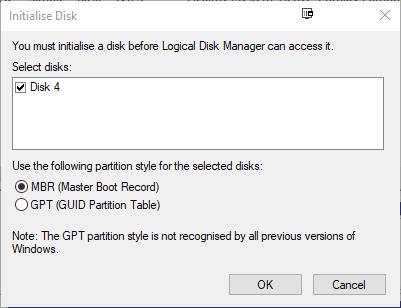
In my scenario, I already had a 500GB Samsung NVMe drive, so I had to install this in the second M.2 slot. This slot does not run the same speed as the primary slot. So I had to set it up and migrate windows on that then swap them over.
Migrating Windows to a new drive
If you plan to upgrade your OS drive to the Kingston KC2500, migration is extremely simple; there is no need to re-install windows.
Kingston includes Acronis imaging software to clone the existing drive to the new drive; however, as I already had Macrium reflect installed, I opted to use this. Macrium is free to use for home use, so an excellent alternative.
By default, the software will clone like for like, which will work perfectly if you are going from two drives the same size. However, if you are upgrading to a larger drive, you will need to define the size of each partition.
Benchmarks
My test system is:
- AMD Ryzen 7 2700
- Asus ROG Strix X470-F Gaming
- Kingston HyperX Fury 32GB 3600MHz DDR4 RAM
The Kingston KC2500 benchmarks with some impressive results, if you are upgrading from a normal SSD or a mechanical hard drive, the numbers a jaw-dropping with sequential read speeds over 6-times faster than the Crucial MX500 SSD I also have installed in my PC.
While an NVMe drive can post ridiculous numbers, it is worth noting that for very small files, which tend to be the things that affect day to day performance, there is not much difference between a normal SSD and NVMe. In my system, the Kingston only pulled significantly ahead of the Crucial once it hit 16KB file sizes with it peaking in transfer speeds at 64KB where it consistently writes at around 2.8GB/s and read at 3.25GB/s. The Crucial plateaued at 16KB with its read/write speeds hitting 450MB/s.
-
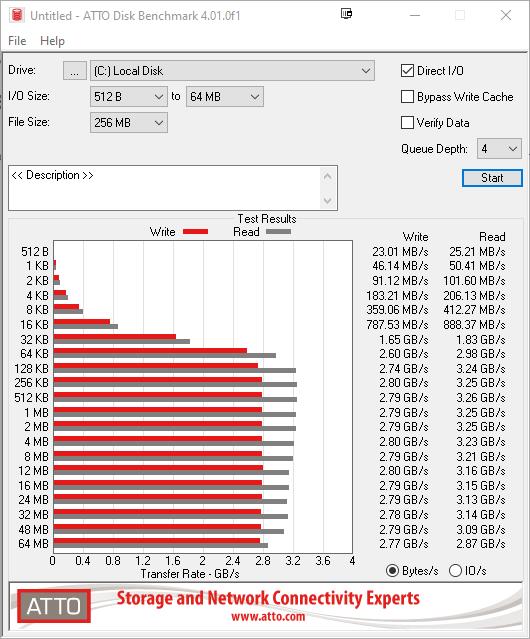
Kingston KC2500 -
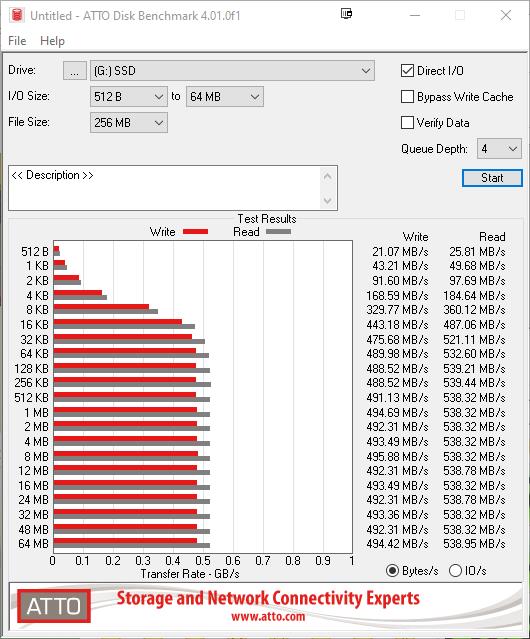
Crucial MX500 SSD -
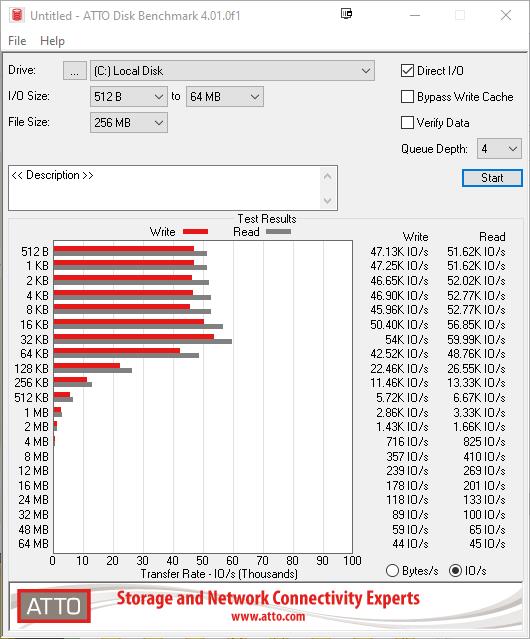
Kingston KC2500 -
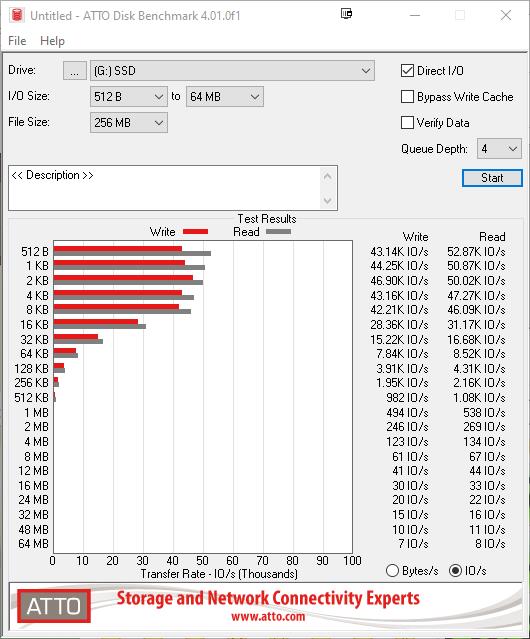
Crucial MX500 SSD
Running multiple benchmarks including Anvil, CrystalDiskMark and ATTO all showed equally impressive results which come close to the officially stated numbers of 3400 MB/s and 2500 MB/s
IOPS (Input/Output Operations Per Second) is an oft-cited performance variable. The numbers published by companies are theoretical maximums, and during my testing, neither the Samsung nor Kingston went past 300k. So while this is an important variable, I have not found it to make much difference with two similarly specced drives. Different usage scenarios may differ though, IOPs will be more important in a server/DB situation.
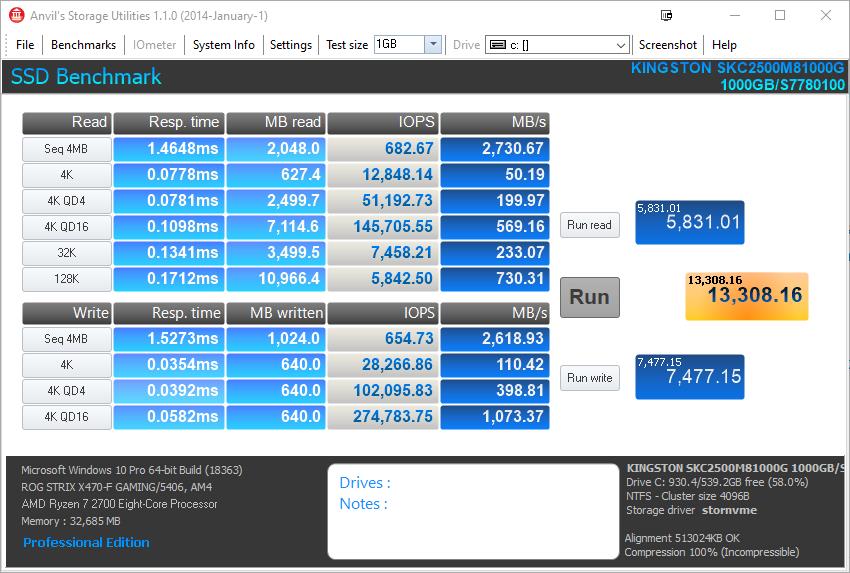
Final Fantasy XIV: Shadowbringers Benchmark
To give some indication of the real-world benefits of the Kingston KC2500, I ran the Final Fantasy XIV benchmark which gives a scene load time.
Kingston KC2500 NVMe
Total benchmark Score: 12829
Loading Times by Scene
- Scene #1: 2.146 sec
- Scene #2: 3.509 sec
- Scene #3: 4.172 sec
- Scene #4: 2.887 sec
- Scene #5: 1.509 sec
- Total Loading Time: 14.223 sec
Samsung 970 Evo 512GB
Total benchmark Score: 12355
Loading Times by Scene
- Scene #1: 1.897 sec
- Scene #2: 4.059 sec
- Scene #3: 4.596 sec
- Scene #4: 2.941 sec
- Scene #5: 1.687 sec
- Total Loading Time: 15.18 sec
Surprisingly the Kingston beat the Samsung by almost a full second for the total load time with a half-second difference with Scene 2.
Crucial MX500 SSD
Total benchmark score: 12399
Loading Times by Scene
- Scene #1: 2.249 sec
- Scene #2: 4.104 sec
- Scene #3: 4.717 sec
- Scene #4: 3.336 sec
- Scene #5: 1.997 sec
- Total Loading Time: 16.403 sec
Many people claim there are no visible real-world gains to be had with an NVMe drive. If we were to look at the performance difference going from a mechanical drive to SSD, then SSD to NVMe the perceived difference would certainly be too small to make much fuss about.
However, there absolutely is a difference in performance, it is not massive, but game load speeds can be very annoying, and you are shaving off around half a second for many of the scenes here.
While there is still a big price difference between SSDs and NVMe drives, the prices have dropped a lot, so it is well worth investing in an NVMe drive even if you opt for a smaller drive for gaming or your OS.
Price and Competition
Pricing seems to be all over the place at the moment for the Kingston KC2500; Amazon doesn’t have the best prices currently at £220
Ballicom currently lists the Kingston KC2500 1TB as £ 177.20 inc VAT which is an incredible price making me think they may have mixed it up with the older model. Then both Box and CCL have this at £187.42.
The older 1TB Kingston KC2000 seems to be getting phased out with a lot of companies listing this at more than the KC2500. The best I can find is Scan which is priced at £155.99 but doesn’t have it in stock right now.
As mentioned previously, the two Samsung alternatives are either £201 for the Plus model or £180 for the slower model.
There has been a growing number of affordable NVMe drives all with varying performance depending on the type of memory they use and the cache available to them.
Corsair MP600 Force Series – £199
This is a PCIe 4 drive, so on paper it has superior speeds with up to 4,950 MB/s sequential read and 4,250 MB/s sequential write speeds, and you need to have an X570 motherboard to make the most of these speeds.
Western Digital_Black SN750 1 TB – £173
Sabrent 1TB Rocket Nvme – £169.99 – Also a PCIe 4 drive
Overall
The Kingston KC2500 in undeniably an excellent drive offering superb performance all around and from my testing offering superior performance to the Samsung 970 Evo.
Performance for the price is essential here; minor gains are redundant if this costs more than competing options. With this being a brand new drive pricing has been a little inconsistent amoungs retailers.
It was listed on Amazon for over £220 which is maybe a little expensive, but is now available via Kingston for just under £200 with delivery.
However, CCL and Box have this listed at £187.42 and Ballicom is just £ 177.01 with free delivery (but 7-working days delivery time).
With a 5-year warranty, built-in hardware encryption and a licence for Acronis imaging software, this is also a well-rounded option that can easily compete with the best of the best.

